Sign up for the
TSL Newsletter
and get $50 off Final Draft 12
By Martin Keady · June 19, 2023
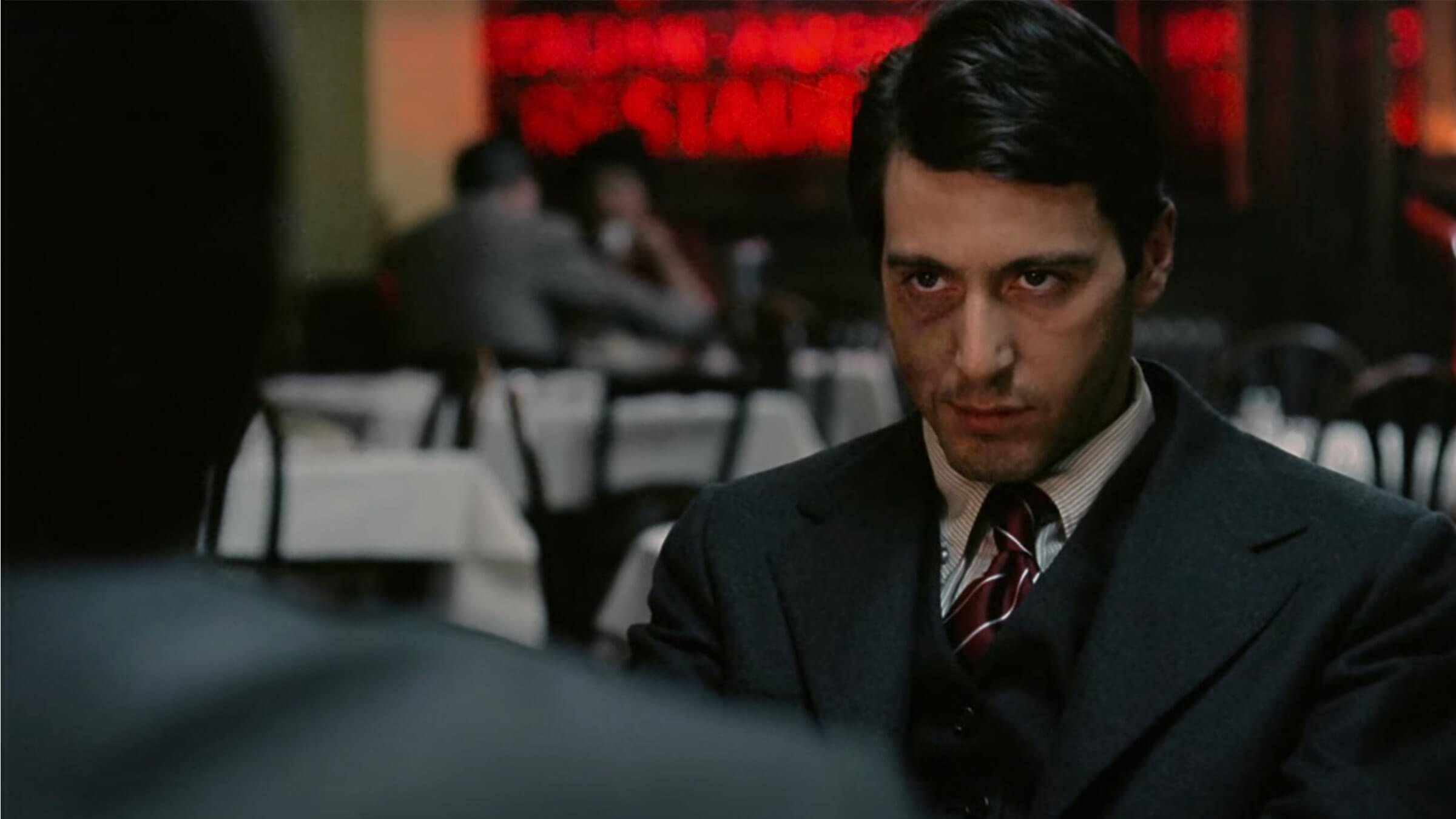
The idea of personal corruption – of a good person becoming bad, or even evil – is perhaps the most enduring idea in all of storytelling. It is, after all, the idea that lies at the root of Judeo-Christian storytelling or mythology, with Adam and Eve, and it is also the animating idea behind so many of the greatest screenplays ever written, including those in this Script Collection. From the Original Golden Age of Hollywood to the 1970s classics of Hollywood’s Second Golden Age right through to 21st-century masterpieces in both television and cinema, the idea of the “Good Guy Turned Bad” is at the heart of so many of the greatest screen stories. Only in these stories (most of which have now assumed almost mythological status themselves), it is not Eve who tastes the forbidden fruit but media magnates, war heroes and even arguably the greatest screenwriter who ever lived.
Here, in chronological order, are six of the greatest good guy turned bad film and television scripts that examine the transition of a once noble individual into an ignoble one. If they are not quite a dirty half-dozen, they are certainly a soiled and sullied half-dozen.
Scripts from this Article
One of the many ways in which Citizen Kane represented a radical break with almost all of the Hollywood filmmaking before it was in its depiction of a truly conflicted individual, Charles Foster Kane, a newspaper baron who acquires the kind of power, including the ability to make or break presidencies or to start or stop wars, that even 21st-century tech billionaires can only dream of. And with that absolute power comes absolute corruption. It’s a quentessential “Good Guy Turned Bad” story.
No spoiler alert: for the few remaining souls who don’t know what “Rosebud” refers to, I will not give it away now. But suffice it to say that beyond its immediate meaning, it symbolizes – indeed, encapsulates – all the innocence that the fully grown Charles Foster Kane finally forfeits. And it is always worth remembering that the original title of Herman J. Mankiewicz’s legendary screenplay, which he had labored on for many years before writer and director Orson Welles gave him the chance to see it realized on screen, was “American.”

‘Citizen Kane’
With that original, one-word title, Mankiewicz implied that Kane’s tragedy was also that of the country he was born in, represented and almost ruled: a once idealized state that had become hopelessly corrupted by greed, self-interest and an almost absurd fetishization of power and, in particular, money. And that is probably even truer of America now than when Mankiewicz first wrote Citizen Kane.
Read More: Citizen Kane: A Film of Mythological Proportions
Download the script!
It says everything about the ubiquity, even the universality, of the idea of personal corruption in cinema that it is at the heart of both the greatest film of the Original Golden Age of Hollywood, Citizen Kane, and the greatest film of Hollywood’s Second Golden Age, The Godfather. And the comparisons between these two masterpieces extend even further. For example, just as the original title of Citizen Kane was American, the very first line of The Godfather is: “I believe in America.” Both films are state-of-the-individual films – the first examining a media baron, the second a crime baron – that are really state-of-the-nation films.
The ”Good Guy Turned Bad” in The Godfather is, of course, Michael Corleone, the multi-decorated, war hero son of Vito, who, as we learn at the end of The Godfather Part II, was initially virtually ostracised by his family, especially his older brother Santino or Sonny, for deciding to fight for his country rather than joining the “family business” and fighting for that instead. Ultimately, however, the pull of blood proves stronger than the pull of nationhood.
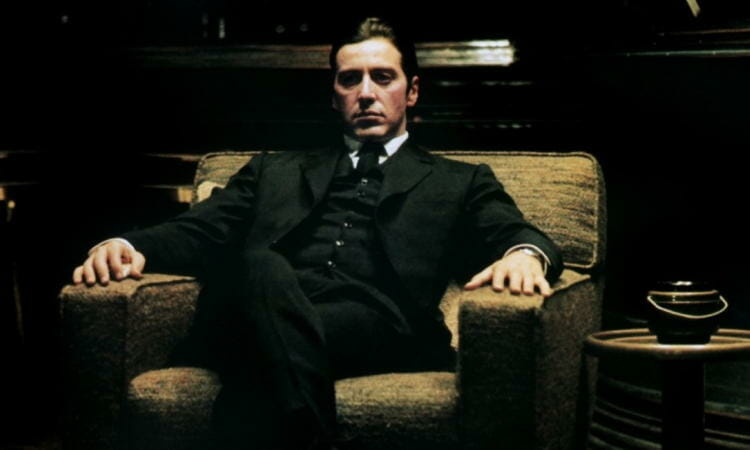
‘The Godfather’
In the film’s opening wedding sequence, Michael proudly proclaims, “That’s my family, Kay. It’s not me,” distancing himself from the allure of criminality. However, when his family is directly threatened – when his father is nearly assassinated – he rushes to the hospital and, finding no one else from the family there (they have all been cleared out by the corrupt cop, McCluskey, to leave the way open for Vito’s rival, Sollozzo, to finish the job), he has to take on the role of protector himself. And from protector he soon becomes an avenging angel, eventually killing McCluskey and Sollozzo himself, thus sealing his fate and losing his soul.
Read More: Francis Ford Coppola and Mario Puzo Delve into The Godfather Screenplay
Download the script!
If The Godfather was Francis Ford Coppola’s examination of American innocence lost on the home front, then Apocalypse Now was his portrayal of American innocence lost abroad, specifically in the slaughtering fields of Vietnam. And what makes Apocalypse Now so fascinating from the point of view of individuals being corrupted is that it depicts two individuals undergoing that transformation: both hunted and hunter, that is both the rogue Colonel Kurtz and Captain Willard, the man sent to “terminate [him] with extreme prejudice.”
In his long and winding journey upriver through Vietnam and into Cambodia, Willard, a multi-decorated soldier himself (just like Kurtz, and indeed Michael Corleone), finds himself reflecting (in voiceover) on the increasing similarities between himself and the man he has been sent to kill. Indeed, he begins to question the validity of his mission and whether any man has the right to take another man’s life. But when push comes to shove and he finally encounters Kurtz, he eventually decides to carry out his orders and kill him, whatever it means for him personally.
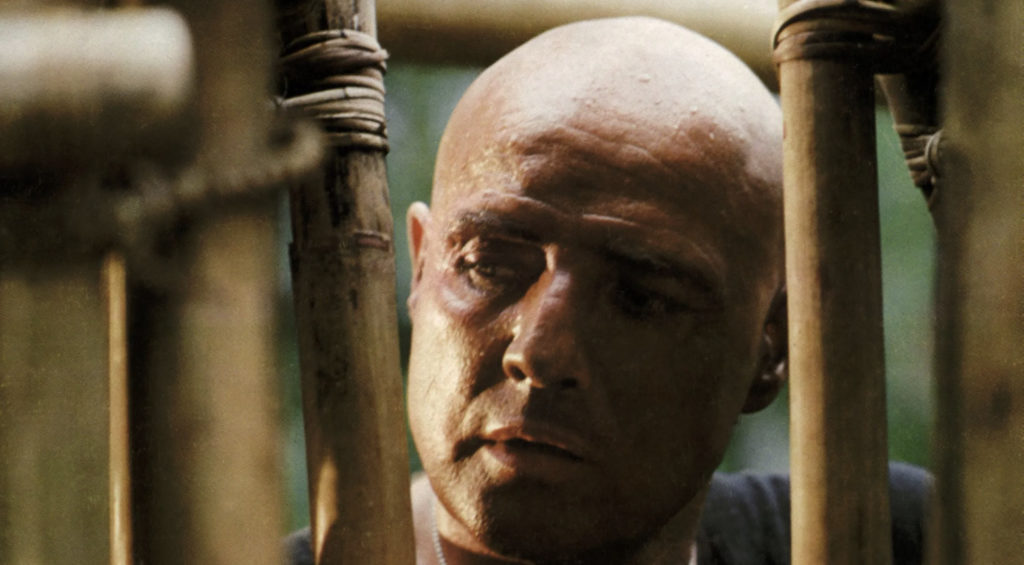
‘Apocalypse Now’
It is also worth bearing in mind that both Citizen Kane and Apocalypse Now, two of the greatest films of the 20th century, were initially inspired, indirectly or directly, by Joseph Conrad’s seminal 19th-century novella, Heart of Darkness. (Apocalypse Now is directly “inspired” by Heart of Darkness, as the title page of the screenplay proclaims, and Orson Welles had originally planned to film Conrad’s novella before filming Mankiewicz’s script for Citizen Kane instead.) Originally published in 1899, it is arguably the single most important piece of 19th-century fiction, ahead even of the many masterpieces of Jane Austen and Charles Dickens, in that it foreshadows so much of 20th-century history and even 20th-century cinema.
Based on Conrad’s own experience of European colonialism in the Congo, Heart of Darkness suggests that so-called “Western civilization” is inevitably corrupted and debased by its contact with supposedly “inferior” peoples, such that it is the Westerners who are eventually exposed as the “savages” and not the indigenous peoples who they exploit or even destroy. In this way, it shows not so much “Good Guys Turned Bad” as Good Civilizations Turned Bad.
Read More: 5 Plot Point Breakdown: Apocalypse Now
Download the script!
Of course, it is not just “good guys” who go bad but good gals, too, nowhere more so than in Callie Khouri’s still-seminal screenplay for Thelma and Louise. The original “female road movie” is also a subtle study of personal corruption, or at least the erosion of individual ideals, as the titular pair are transformed from a housewife and waitress into a pair of killers on the run.
Callie Khouri’s genius in Thelma and Louise is to show that her heroines are not really villains but victims, in a brilliant inversion of the traditional “Good Guy Turned Bad” trope (just as Thelma and Louise is a brilliant inversion of so many traditional cinematic tropes). Ultimately, Thelma and Louise, like so many women, including Khouri herself (who was first driven to write the screenplay because of her own incessant humiliation as a waitress by male customers), are the victims of patriarchy, whereby an invitation to dance is seen as a greenlight to rape.
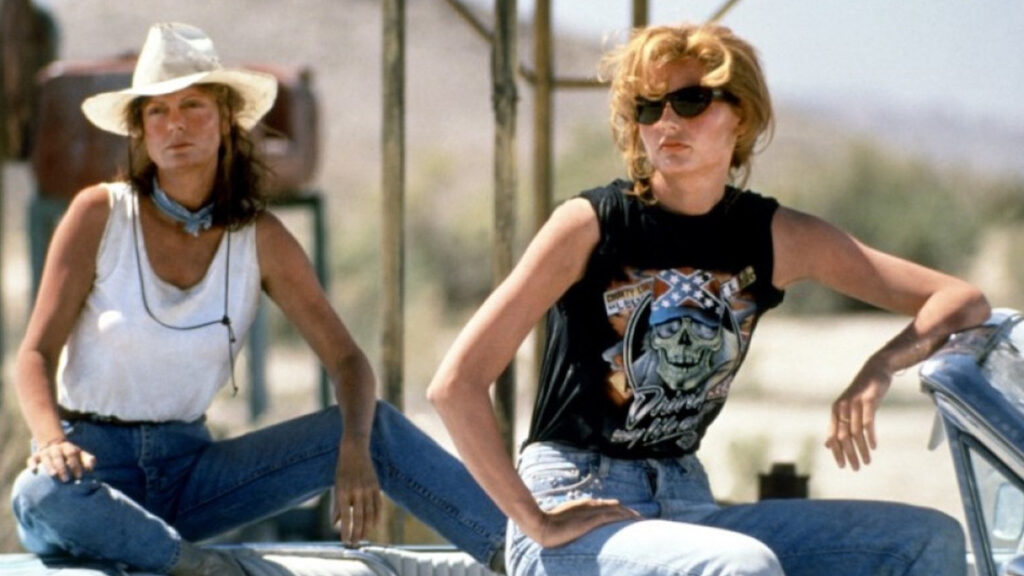
‘Thelma and Louise’
However, once they have committed their original crime of murder, and then doubled down on it with robbery to facilitate their escape to Mexico, not even the profound sympathy of the police chief tracking them (played by Harvey Keitel in arguably his most sympathetic and therefore against-type role) can save them from their fate.
Read More: 3 Screenwriting Tips from Thelma and Louise Screenwriter Callie Khouri
Download the script!
It perhaps says everything about the primacy of television (small-screen storytelling) in the 21st century over cinema (big-screen storytelling) that the best, or rather worst, “Good Guy Gone Bad” of recent decades is probably Walter White of creator Vince Gilligan’s television series, Breaking Bad. Of course, like Walter himself in Albuquerque, the theme of personal corruption is hiding in plain sight in the title, a spin on the traditional breaking ball in baseball, which is a straight-thrown ball that suddenly deviates, or breaks, sharply. And so does Walter White when he is diagnosed with terminal cancer.
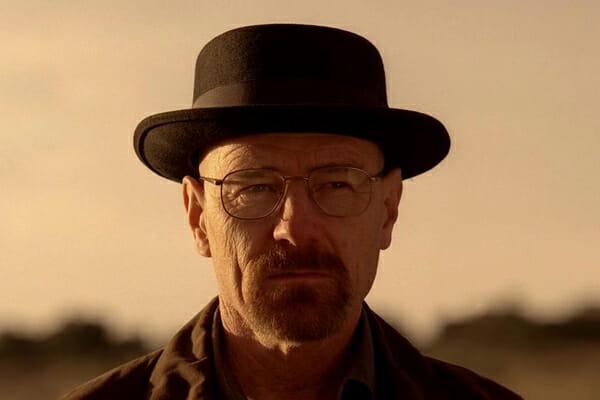
‘Breaking Bad’
Gilligan himself memorably summarized his story, saying that he pitched it as “Mr. Chips turns into Scarface.” And that character arc or journey is there in the already-legendary pilot episode, in which Walter, the most unassuming (and therefore largely ignored) of men, suddenly realizes that if he is to support his wife and children after he is gone he will not be able to do so through teaching. Consequently, he puts his knowledge of chemistry (which we later learn is almost of Nobel prize-winning standard) to better, or rather worse, use by making crystal meth. And thus his transformation from “Mr. Chips” to “Scarface,” or from teacher and straight-down-the-line citizen to drug dealer and cold-blooded killer, begins.
Read More: Breaking Bad: A Tribute To Heisenberg’s Blue Crystal Kingdom
Download the script!
To complete this assessment of great screen journeys from good to bad, we return to where we began, with David Fincher’s magisterial biopic of Herman Mankiewicz, the co-writer – indeed, the original writer – of Citizen Kane. Mank (as Mankiewicz was known to his closest friends) was based on a screenplay by Fincher’s late father and perhaps that is one of the reasons why it works so well, namely that it took a father and son team to explore the two father and son relationships at the heart of Citizen Kane: not just that between the older, more cynical Mankiewicz and the younger, more optimistic Welles but that between Mankiewicz and his actual subject and inspiration for Kane, Randolph Hearst, who was originally not his enemy but his benefactor.
The term “origin story” has become almost ubiquitous in cinema in recent years, with so many so-called “origin stories” about superheroes or Star Wars characters. Yet Mank is arguably the ultimate origin story, not just of Citizen Kane itself but of so much 21st-century screen storytelling, including the “fake news” that has become so prominent in our so-called “post-truth” age. The genius of Mank is to show that the man who was perhaps primarily responsible for so much of that cinematic and televisual duplicity was Herman J. Mankiewicz, a writer who was supposedly committed to telling the truth.
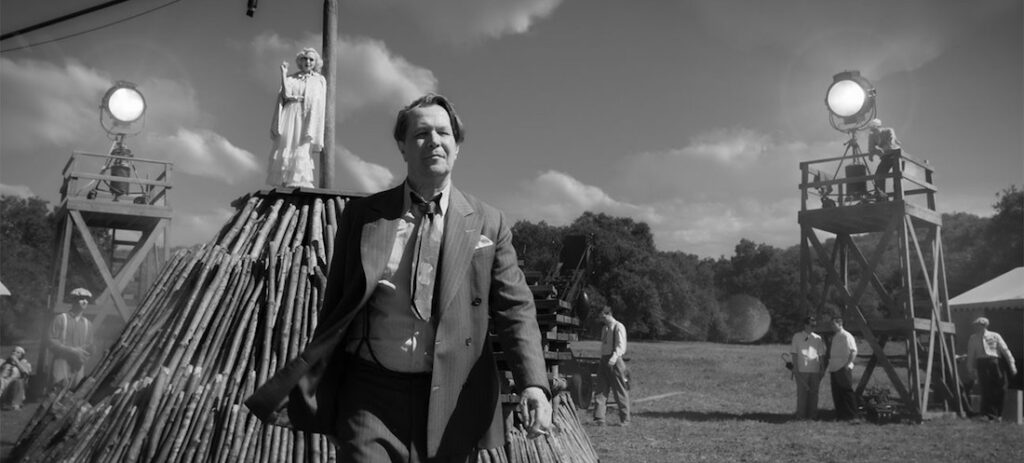
‘Mank’
It is because he had inadvertently helped Hearst and his supporters to secure victory in an election (as a result of their acting on one of his typically brilliant but throwaway remarks) that Mankiewicz is determined to wreak revenge on Hearst, whatever the cost to himself and his career, by writing Citizen Kane. And in this way, Mank may be the ultimate example of “The Good Guy Turned Bad,” in that ultimately “The Good Guy Turned Bad” becomes good again, or at least tries to.
Download the script!